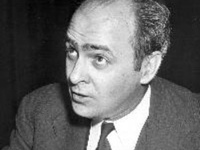And in February, McCarthy, then an unknown senator from Wisconsin, told a group of people at the Wheeling, W.Va. Women’s Club that he had a list of 205 communists in the State Department—and was planning to root them out.
“Things were kind of hairy in connection with East-West affairs,” Walter F. Greeley ’53 recalls. “McCarthy started waving his supposed evidence about this and that...People started by taking McCarthy somewhat at face value.”
Nationwide attention turned to colleges and universities as well. Many states, including Massachusetts, instituted loyalty oaths for teachers, in which faculty swore to defend and protect the U.S. Constitution. State Rep. Paul A. McCarthy, D-Somerville, and Superior Court Clerk Thomas Dorgan proposed a series of bills geared toward limiting the perceived threat of communists on campuses, including one in 1950 calling for the removal of communist teachers.
And after the 1952 congressional elections, Rep. Harold Velde, R-Ill., chair of the House Un-American Activities Committee, and Sen. William Jenner, R-Ind., chair of the Senate Internal Security Subcommittee, announced an investigation into the feared communist influence within educational institutions.
In his presidential report at the outset of 1953, University President James B. Conant ’14 announced his ambiguous stance on the probe.
“There are no known communists on the Harvard staff,” Conant said, adding that he hoped that the government would “ferret out” communists devoted to subversive activity. He would not support the appointment of a communist adherent in any educational environment, he said.
At the same time, Conant said he feared that the congressional investigation of faculty members would create an oppressive atmosphere at the University that would quash its academic freedom.
“The independence of each college and university would be threatened if governmental agencies of any sort started inquiries into the nature of the instruction that was given,” he told the Harvard community.
Harvard’s student body appeared to support his gesture.
In March, the Student Council urged the University to continue teaching about communism from an objective academic standpoint. Congressional investigation could “stifle free thought through the pressures engendered by widespread fear,” the council warned.
But some wondered whether students were entirely immune to the Red Scare mentality.
Associate Professor of History Arthur M. Schlesinger Jr. ’38 criticized students for cancelling an appearance by a left-wing novelist and screening a movie starring an actor rumored to have communist ties.
“It is a stirring commentary on the courage of this new generation that the faculties and governing bodies of a university should be more in favor of free speech than the students,” Schlesinger wrote in an April letter to The Crimson.
Student organizers said that the cancellations had not been the result of political concerns.
But Schlesinger’s barb stung nonetheless—an indication that tempers ran short in the charged spring of 1953.
Read more in News
Sikh’s Sword Seized By School













